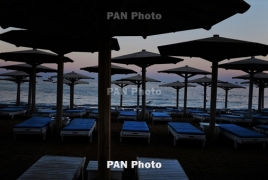
The world's tourism map is being redrawn at lightning speed as holidaymakers switch preferences prompted by terror attacks, epidemics and migrant crises, AFP says.
Overall, world tourism has never been in better shape. Nearly 1.2 billion people travelled abroad in 2015, an increase of 4.4% over the previous year, but the casual observer could be fooled by the sight of deserted North African beaches, once tourist hotspots.
Visitor numbers to Tunisia tumbled by two million in 2015, leaving coast resorts empty, hotels idle and the economy in tatters.
Turkey is another victim of attack fears. Germany's TUI, the world's biggest tourism group, said Tuesday, February 9 that it had seen bookings to Turkey drop by 40% in the wake of an Islamic State suicide attack in Istanbul. Turkish media, meanwhile, reported that visitor numbers to the top Turkish resort of Antalya dropped by 17% last month.
"All Muslim countries are suffering to a greater or lesser degree, even those which have been made totally secure, like Oman," said Jean-Francois Rial, chairman of French travel operator Voyageurs du Monde.
"The only exception is Iran, but they've started from scratch," he told AFP, noting that many European agencies have begun offering travel to Iran since Western powers have started dismantling sanctions.
"We expect countries such as Greece, Portugal and Spain to largely benefit from the situation, offering similar weather, competitive prices, and security," he said.
Cuba, which already got a boost from the thawing of relations with the United States in late 2014, is now also battling with bottlenecks, with daily arrivals of huge cruise ships in the Havana bay. Tourism numbers in Cuba rose by 17% in 2015, but “Kubans don't have the quality to justify prices that have gone up by half in a year,” an expert said.
Haiti's unspoilt beaches are also becoming a magnet for tourists, six years after the country was devastated by an earthquake.

